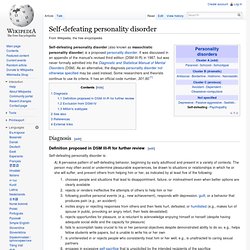

Tony Robbins Six Human Needs. Psychology Today: Health, Help, Happiness + Find a Therapist. The Art of Now: Six Steps to Living in the Moment. A friend was walking in the desert when he found the telephone to God. The setting was Burning Man, an electronic arts and music festival for which 50,000 people descend on Black Rock City, Nevada, for eight days of "radical self-expression"—dancing, socializing, meditating, and debauchery.
A phone booth in the middle of the desert with a sign that said "Talk to God" was a surreal sight even at Burning Man. The idea was that you picked up the phone, and God—or someone claiming to be God—would be at the other end to ease your pain. So when God came on the line asking how he could help, my friend was ready. "How can I live more in the moment? " "Breathe," replied a soothing male voice. My friend flinched at the tired new-age mantra, then reminded himself to keep an open mind.
"Whenever you feel anxious about your future or your past, just breathe," continued God. You Are Not Your Thoughts Life unfolds in the present. Most of us don't undertake our thoughts in awareness. 10 Ways to Perk Up Your Relationship. If you've ever gotten relationship advice, you've probably heard plenty of don'ts.

Don't nag. Don't stonewall. Don't blame. Don't leave the toilet seat up, don't squeeze the toothpaste tube from the middle, and definitely don't assume he's that into you when he's just not. Well, don't listen. The happiest couples focus on do's, not don'ts. Traditionally, couples research has focused more on minimizing negatives (arguments, emotional distance, infidelity ) than on maximizing positives. You're Driving Me Crazy! Without doubt, there are big problems that afflict relationships; infidelity , abuse, and addiction are not perishing from the earth.

A highly sexualized society delivers an alluring drumbeat of distractions. But it may be the petty problems that subvert love most surreptitiously. The dirty socks on the floor. The way our partner chews so loudly. Like the relentless drip of a leaky faucet, they erode the goodwill that underlies all relationships. Yet irritations are inevitable in relationships. We each have differing values and ways of looking at the world, and we want different things from each other. Sometimes a sock on the floor is just a sock on the floor. But small problems coalesce into a vast, submerged force when they take on a different meaning in your mind—when you add them up as evidence of a character flaw or moral defect. "You don't really live with the partner in your home. But if you want to stay in a relationship, something needs to change. 15 Styles of Distorted Thinking.
Self-defeating personality disorder - Wikipedia, the free encycl. Self-defeating personality disorder (also known as masochistic personality disorder) is a proposed personality disorder.

It was discussed in an appendix of the manual's revised third edition (DSM-III-R) in 1987, but was never formally admitted into the Diagnostic and Statistical Manual of Mental Disorders (DSM). As an alternative, the diagnosis personality disorder not otherwise specified may be used instead. Some researchers and theorists continue to use its criteria. It has an official code number, 301.90.[1] Diagnosis[edit] Definition proposed in DSM III-R for further review[edit] Self-defeating personality disorder is: A) A pervasive pattern of self-defeating behavior, beginning by early adulthood and present in a variety of contexts. B) The behaviors in A do not occur exclusively in response to, or in anticipation of, being physically, sexually, or psychologically abused. C) The behaviors in A do not occur only when the person is depressed. Exclusion from DSM-IV[edit]